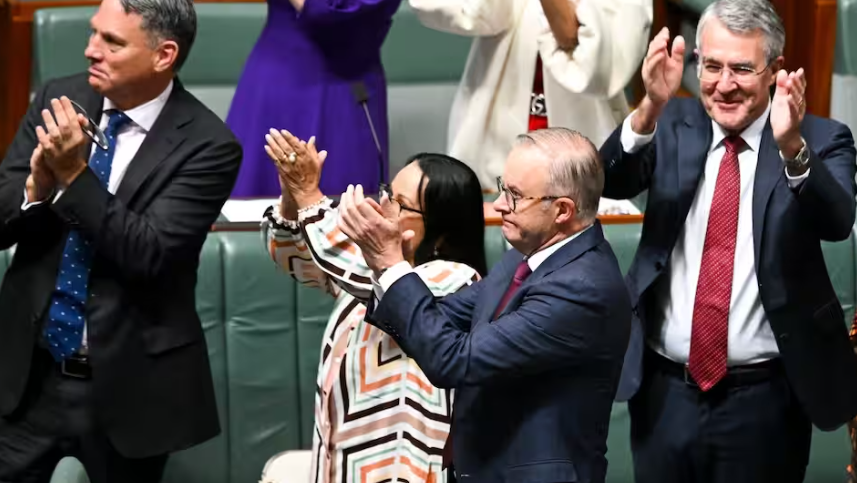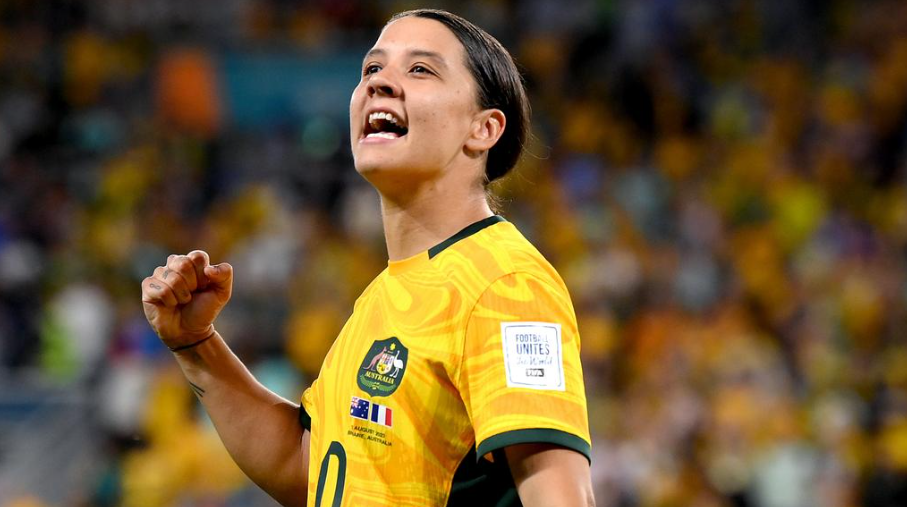The government has introduced legislation for a First Nations Voice to Parliament.
Labor has taken the first formal step towards a First Nations Voice to Parliament, with Attorney-General Mark Dreyfus declaring it is time for “a different approach” to Indigenous disadvantage.
Mr Dreyfus introduced legislation to parliament on Thursday, the final sitting day of the month, which will
.
Coalition leader Peter Dutton was not in the chamber for the speech, which appeared to be attended by less than half of opposition MPs, but he did appear on talkback radio to claim Prime Minister Anthony Albanese had not answered “reasonable” questions over how the Voice would function.
“The cultures of Aboriginal and Torres Strait Islander peoples – and their relationship with their lands, waters, and sky – have endured,” he said.
“The dispossession of their lands, languages and cultures, and top-down Government policies afflicted deep and continuing wounds on generations of Aboriginal and Torres Strait Islander peoples and their cultures.
“Many suffer intergenerational trauma as a result of this history.”
Mr Dreyfus said “we are failing” to close the gap on inequality with Indigenous Australians, despite the Mabo ruling and Apology to the Stolen Generations.
Roughly 20 Coalition members were present to listen to Mr Dreyfus’s speech, including a handful of Nationals who are committed to campaigning against the Voice.
Peter Dutton absent from the chamber
Coalition leader Peter Dutton, who is yet to reveal his stance on the body, was notably absent from the chamber.

“There are a lot of questions that are still out there that reasonable Australians have, and that they want answered,” he said.
“I think it’s reasonable that the questions are asked and when the Prime Minister stands up in Parliament, he should be answering the questions.”
Mr Dutton said there many issues were still to be resolved, claiming litigation in the High Court could cost “billions” and that the Voice may impact Australia’s support for the AUKUS pact.
He argued that holding the consultation period after the referendum “doesn’t make any sense”, saying the public was “smart enough” to decide on a fully-formed model.
‘Completing our nation’s birth certificate’
Speaking alongside the referendum engagement group on Thursday, Indigenous Australians Minister Linda Burney said how the Coalition approaches the issue is “their decision”.
“I didn’t take much notice of what was going on on the other side … What I do know is that the government is absolutely all in on this,” she said.
“[We are] one step closer to creating a Voice that will make sure the voices of our people are heard, one step closer to improving lives with the Voice that makes a difference,” she said.
“There will always be those that seek to hold us back. Those doubters, those wreckers, they want to hold Australia back.
Voice to Parliament referendum question
Last week,
.
Labor settled on the wording after months of consultation with the Voice working group, which also met with Mr Dutton on multiple occasions.
But many details on how the Voice would function would be worked through after any successful referendum campaign, after a consultation process that will include Indigenous Australians.
Mr Dreyfus said Parliament will also have the power to tweak the Voice in the future.

Voice will be gender balanced
Mr Albanese also revealed the Voice would be gender balanced, include youth representatives, and have a membership determined in line with the wishes of the Indigenous nations’ representatives.
The Liberal Party is yet to reveal its stance on the Voice, months after its junior Coalition partner, the Nationals, declared they would campaign against the body.
The Voice would be an advisory body, giving input to the parliament and government on issues impacting First Nations Australians. It would not have veto power over government policy.


Leave a Reply